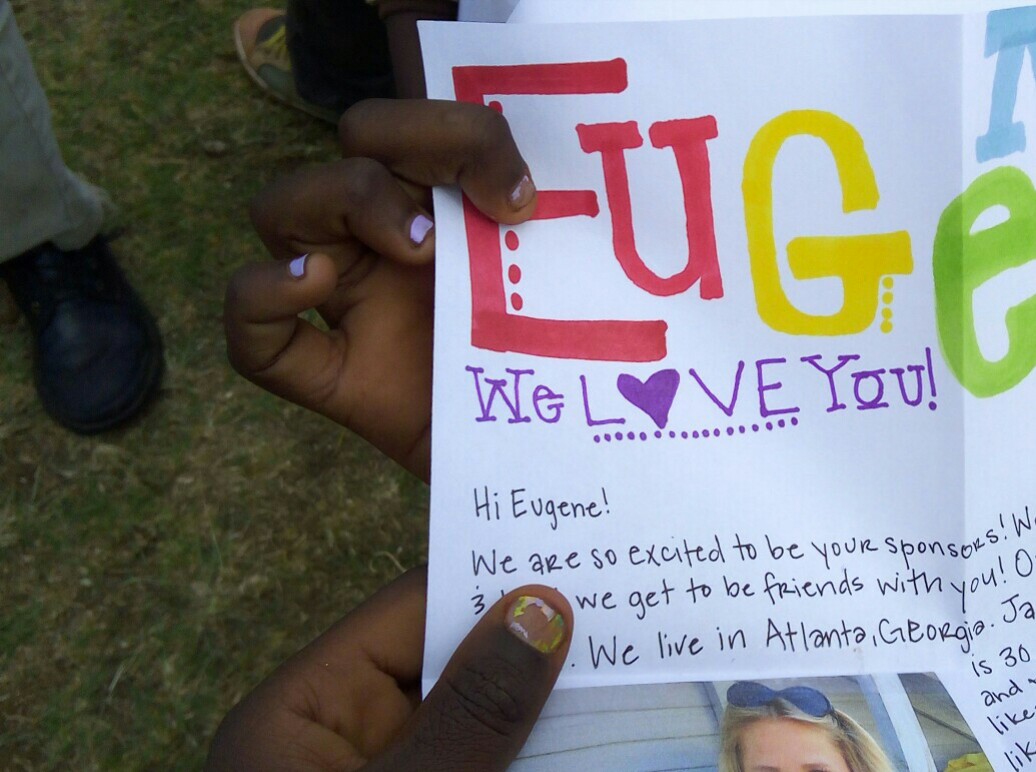Letter Writing in Charity: A child’s burden
Sponsoring an individual child in the developing world is a popular form of charitable giving. This sometimes takes the form of regular donations to a charity that links the sponsor to the child through an exchange of letters and photos. As well as providing a reliable source of long-term funding, this form of aid can also help to create a feel-good factor in the sponsorship process.
But how do children themselves experience a system that connects them with complete strangers? Stahili’s Field Programmes Manager, Joseph Wanyoike, shares his personal story on the practice of letter writing between children and sponsors.

Letter writing to my sponsor
When I was a child, a donor many thousands of miles away from my Kenyan village sponsored me through an international NGO. I was raised by both of my parents, but as one of 15 children in the family, I needed and appreciated the support. Like a number of NGOs, this organisation connected donors to beneficiaries through letters. Along with other kids, I was asked to write letters to my sponsor to thank them for all that they were doing for me. For many years I exchanged letters with my American benefactor, who helped to pay for my schooling.
However, having such a personal connection with a sponsor can conjure up mixed emotional highs and lows for children, something many donors may be unaware of. When I was young, the obligation to write letters to my sponsor could bring a lot of emotional stress. When letter-writing time came around, I sometimes cried, never knowing whether what I was writing was appropriate for my sponsor and not even knowing whether my sponsor would understand my feelings.
Do children need relationships through letters?
Letter writing often evokes anxiety, jealousy, and disappointment among children. Some feel left out when they don’t get a reply to their letters and some feel dependent and opt to ask for more help. But the charity organisations often control what children write in subtle ways. For instance, children are usually discouraged to ask for gifts and extra financial help. I was restricted similarly. You can imagine what children feel when their self-expression is controlled — anger and frustration.
It is important to honestly discuss one other fact. Many donors receive letters from young children who are often not old enough or able to write letters. Letters are then written by staff, creating an artificial process only to give donors what everyone thinks they need. Most of the time, if we look closely, it is apparent that the content of letters is not commensurate with the level of development of a child, referring to such things as gratitude for “golden opportunities” and the like.
There are also important cultural factors. Believe me, the children receiving sponsor support are well aware that they are poor. And they are grateful. But gratitude in Kenya, for instance, is not expressed in a greeting card. What children need are normal relationships with people in their community – the type of relationships that equip them for living in society and which they need to form their identity.
What if a sponsor decides to withdraw funding and refuses to support the child anymore? This is why a sponsor and the child should not have a personal relationship to begin with. A sudden cease in funding may result in the child feeling neglected or thinking that the sponsor does not care for them.
There should be no conditions, such as letter writing, placed on child beneficiaries of charity for it to bear its fruit. It is my firm belief that letter writing also perpetuates dependency. The international community has thankfully started moved away from a model based on the giving of aid towards a model based on sustainable participation and empowerment. The abolition of letter-writing should be part in parcel in this process.
True love towards a distant sponsor can never be expressed through the writing of letters at a young age. Nor can real relationships be formed through them even as time goes on.
Redefining sponsorship
As donors we should want NGOs to spend our money the right way – to aid and protect children. Letter writing can be costly and time consuming. The resources that are needed to arrange letter writing between donors and individual children can be better spent on programmes that impact on wider groups of beneficiaries.
While donors and sponsors are an intrinsic part of the development process, we need to reflect on why we need letter writing to be part of it. Notwithstanding the success stories of friendships formed (much like mine with my sponsor), the much larger scale of unnecessary attachments resulting in unmet expectations and emotional disappointment for children poses a serious ethical concern and challenge. Moreover, some sponsors may think that they have the right to make decisions regarding the child as a result of this personal relationship. Children should not feel obliged to write simply because someone donates.
At Stahili we do not encourage letter writing, gifts or visits between donors and individual children. Instead, we ask donors to join us in our mission to see children out of orphanages and with families and in full-time quality education.